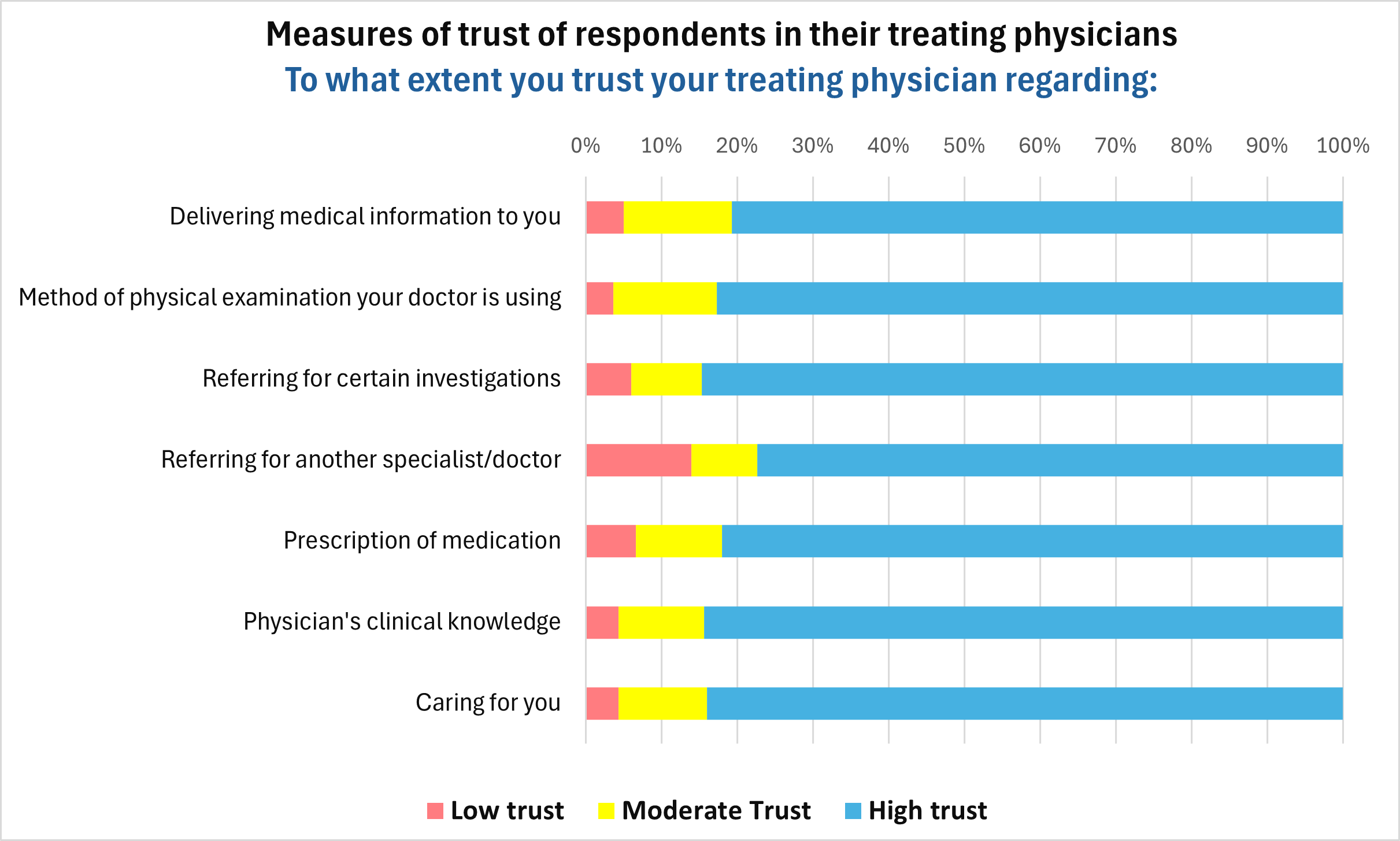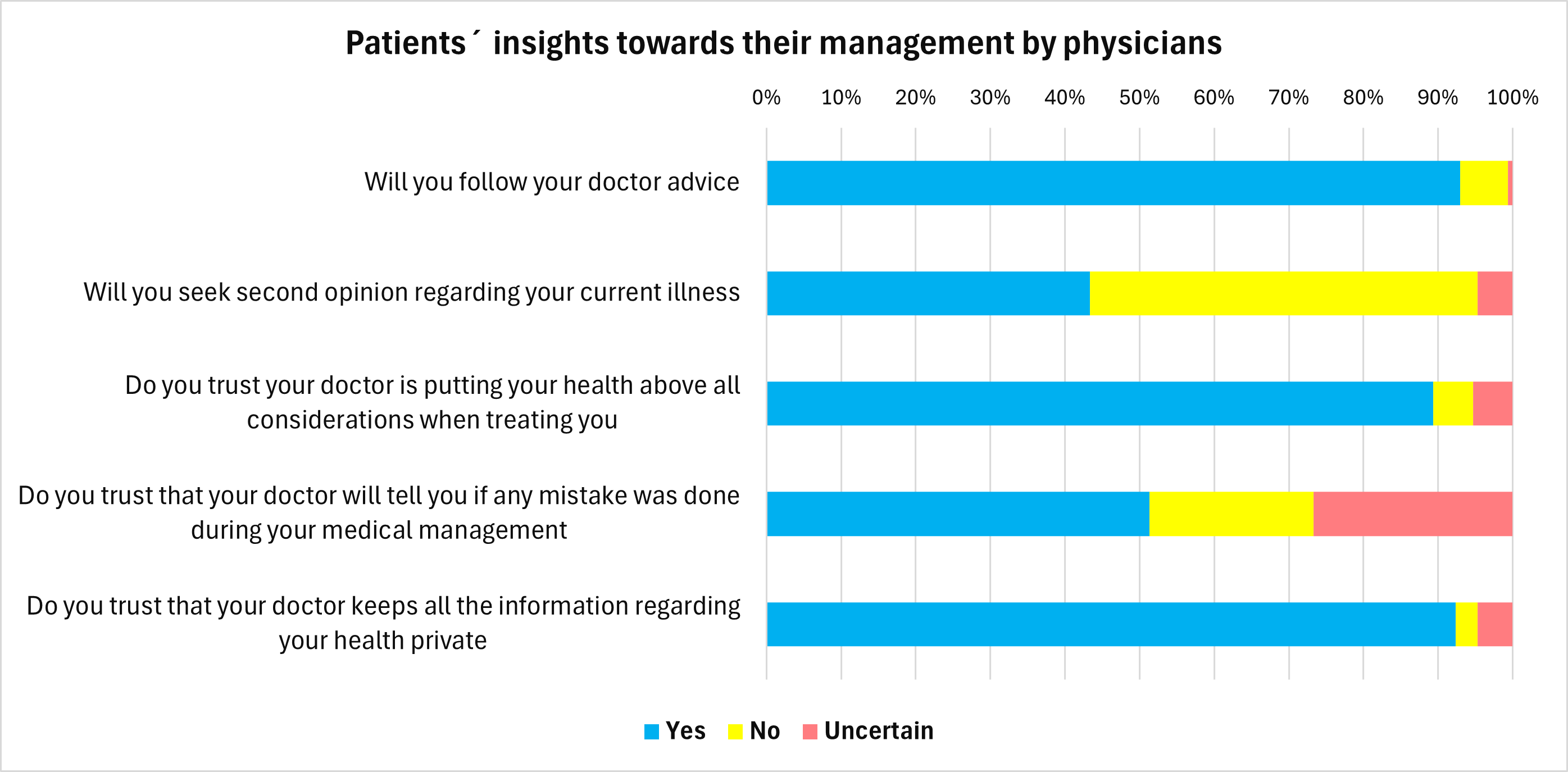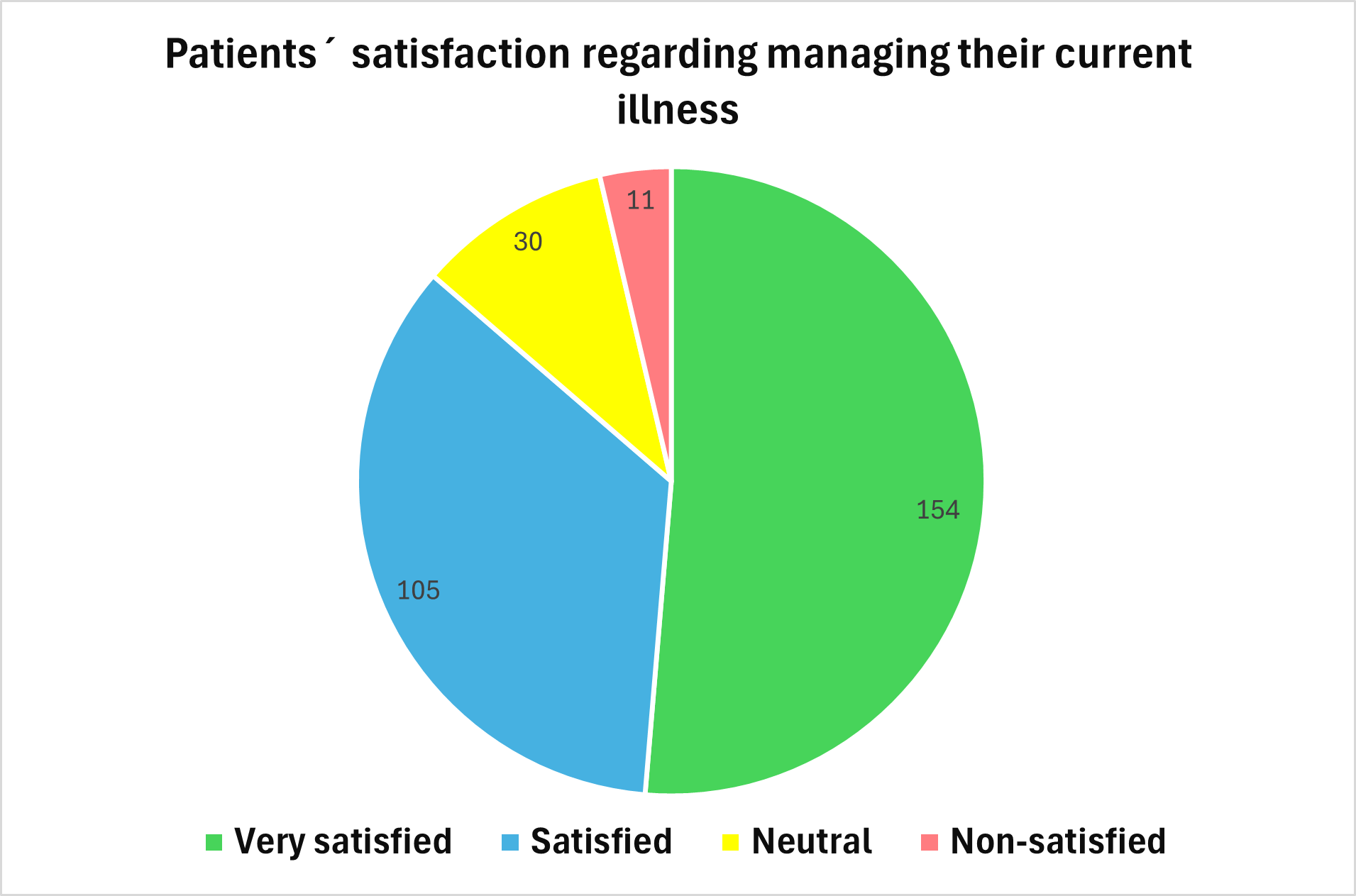Lots of interesting abstracts and cases were submitted for TCTAP 2025. Below are the accepted ones after a thorough review by our official reviewers. Don’t miss the opportunity to expand your knowledge and interact with authors as well as virtual participants by sharing your opinion in the comment section!
TCTAP A-099
Patients' Trust in Physicians: A Survey-Based Data From Iraq
By Khadija Murtada Jabbar, Safa Faez Zuhair, Fatima Qasem Abdul Ameer, Hawraa Qasim Abbas, Zainab Dakhil
Presenter
Zainab Dakhil
Authors
Khadija Murtada Jabbar1, Safa Faez Zuhair1, Fatima Qasem Abdul Ameer1, Hawraa Qasim Abbas1, Zainab Dakhil1
Affiliation
University of Baghdad, Iraq1
View Study Report
TCTAP A-099
Digital Health and Artificial Intelligence
Patients' Trust in Physicians: A Survey-Based Data From Iraq
Khadija Murtada Jabbar1, Safa Faez Zuhair1, Fatima Qasem Abdul Ameer1, Hawraa Qasim Abbas1, Zainab Dakhil1
University of Baghdad, Iraq1
Background
Cardiology is a critical field that deals with critical patients. Trust in treating physicians is the cornerstone in making shared decisions regarding proper cardiac care. There is lack of data regarding to what extent patients; in the Middle East in general and Iraq in particular; are trusting their physicians regarding management decisions. We aim in our study to assess the trust of patients in their treating physicians and the impact of patients and physicians’ demographic features on this trust.
Methods
This is a cross-sectional survey involving a paper form questionnaire that was designed by the investigators and involved 21 closed end questions. The survey intended to be filled by the investigators during a face-to-face interview with patients attending recruited centres (8 centres). The survey questions focused on the following: 1- Respondents’ characteristics including age, gender, residency, and education.2- Type of attended setting and age and gender of treating physician.3- Respondents trust in and perceptions towards the treating physician.For validation of the survey, the survey questions were shared and revised by project investigators (five members) and checked for clarity and objectivity of the questions, then investigators interviewed 15 patients as internal pilot. No further amendments were needed, so the same form was used in interviewing the other patients.
Results
n=300, among those 69.66% women, 89.33% from urban residency, 32.33% had primary education and 13% were illiterate. 32.66% of respondents reported that their treating physicians during current attendance were women. Respondents reported high trust in their physicians regarding: delivering the medical information, the used methods of physical examination, referring for investigations and regarding their own clinical knowledge in 80.66%, 82.66%, 84.66% and 84.33% respectively. There was high trust in physicians’ prescription of medications and care in 82% and 84% respectively. Respondents stated that they would follow their doctor advice in 93%, while 43% reported that they would seek second opinion regarding their current illness. 51.33% thought that their doctor would tell them if any mistake was done during their medical management. Respondents mentioned that that they were very satisfied or satisfied with the experience of managing their current illness in 51.33% and 35% respectively. On asking patients regarding their trust in doctors in putting patient health above all considerations: positive trust was more reported by male respondents, rural residents, those who were treated by male and older physicians, those who were in in-hospital settings and who were referred to hospital from private clinics. 83% of respondents reported that they would participate in future research if their physicians invited them. In that context, 80.06% of younger respondents (<50-year-old) have positive response vs 85.71% of older group. Female patients, PhD holders and rural residency occupants were more positive regarding participation in future research if invited. Furthermore, respondents who were treated by male and older physicians had more positive response to participate in future research.






Conclusion
Patients-physicians trust is a crucial concept and significantly affects the management path of the patients as well as their adherence to the doctor's advice. There is a high patients-physicians trust and high satisfaction level of patients with their physicians’ care. Although positive responses were reported regarding these factors such as referring to another specialist, privacy, method of medical examination and others, a less level of trust was observed regarding mistakes telling and seeking a second opinion. Age and gender remain important determinants of level of patients-physicians trust in real world.


